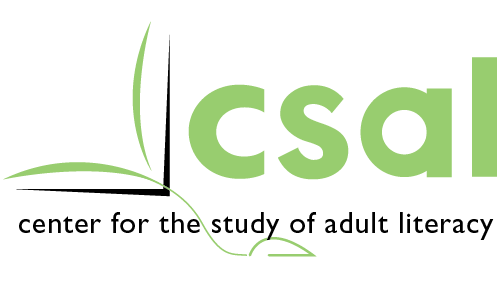Year One Summary
Each year, nearly 3 million Americans enroll in adult literacy programs to improve their basic skills, and some estimates suggest the need is even greater. Adults in these programs want to increase their literacy skills to improve aspects of their work, family, social, and civic lives. However, we do not completely understand their underlying reading-related strengths and weaknesses, nor do we know the best curricula and teaching approaches to help them reach their reading goals. The focus of our center is to address these areas by addressing the following goals: 1) To collect data on the underlying cognitive and motivational processes that contribute to or impede the reading development of adults who read between the 3.0 and 7.9 grade equivalency levels; 2) To develop and evaluate a multiple component reading intervention for adults who read between the 3.0 and 7.9 grade equivalency levels; 3) To design and collect data from supplemental studies that are aligned with the overall goals of CSAL and are relevant to significant issues in adult education; 4) To engage in national leadership activities that serve the needs of adult education researchers, policymakers, practitioners, and stakeholders; and 5) To disseminate findings of this work.
The Center received its initial funding on September 1, 2012 and this report covers our activities through May 31, 2013. During this time period, we engaged in the following activities: A) “Startup”, B) Phase I testing, C) Design of the intervention, and D) Other center activities. “Start up” activities included completion of tasks designed to make the Center operational. Phase I testing activities have included decisions regarding test selection and order of administration, survey development, test administration rules, CSAL test manual creation, test kit preparation, and tester training. Testing began in mid-February, and as of May 31, seventy-eight adult literacy students have either completed or are in the process of completing testing. This group of students is largely female with an average age of 39. A cursory look at their performance indicates that they are deficient in all aspects of reading and reading-related skills and in a number of language and memory domains.
Design of the intervention has involved both iterative curriculum development and development of the AutoTutor Script Authoring Tool. Most of our development work this year has focused on the PACES aspect of our curriculum, instruction on five text comprehension strategies and the skills needed to use them successfully. The first 10 lessons of PACES are at various stages of completion-with different lessons having been iteratively designed up to 10 times. A decision was made to adopt a Hybrid framework of instruction. Specifically, learners are introduced by a human teacher to the skills they need to use each comprehension strategy effectively. This process is supported by the use of text examples and engaging group discussion. This teacher-guided component fosters community building within the group, which we believe will be motivating to adult learners in the program. This part of the lesson is followed by the AutoTutor components.
Other center activities described in this report include development of a Web-based text repository, creation of an adult literacy practitioner survey, construction of our website, delivery of a webinar and conference presentation, and quarterly Memphis practitioner meetings.
